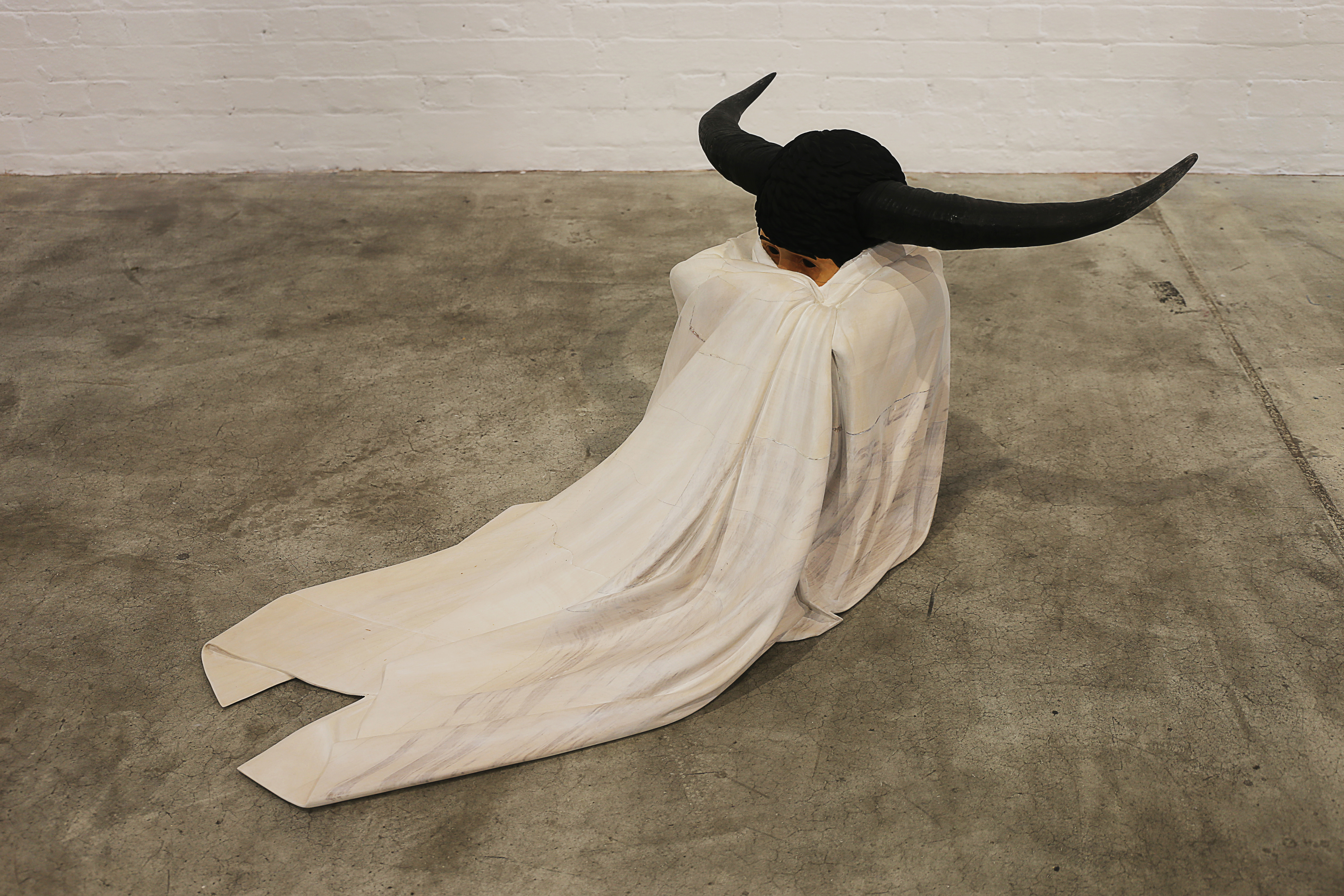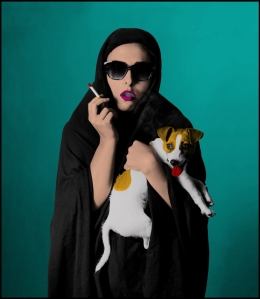
A powerful exhibition at UNSW Galleries aims to spark informed conversations about the experience of modern-day Australian Muslims.
An insightful project that explores the current Australian Muslim experience will open at UNSW Galleries in May.
Presenting work by award-winning Muslim artists of diverse backgrounds, Enough خلاص Khalas will run at UNSW Galleries from 4 May to 14 July, exploring the dialogue currently provided through the contemporary art of Australian Muslims.
This exhibition aims to provide a creative and thought-provoking approach to spark informed conversations that invert the current cultural climate of manufactured ‘fear and dread’.
The word khalas in Arabic has myriad definitions including: ‘stop’, ‘finish’, ‘that’s all’, ‘it’s fine’ and ‘enough!’ Within this fraught socio-political climate informed by the so called ‘War on Terror’, the artists say that many Australian Muslims have had enough. They have also decided they are enough.
Khalas explores complex themes including the recent politicisation of the Muslim identity, the rhetoric of ultra-nationalism and the militarisation of borders. This is a diverse exhibition that speaks with candour to the often cited but rarely interrogated social condition of Australian Muslims today.
Co-Curators Phillip George and Nur Shkembi say the exhibition aims to provide an alternative and egalitarian frame of reference to reframe and reclaim language around the Muslim experience. The featured artists offer a new insight into understanding other ways of being.
“The variety of subject matter dealt with by the artists in Khalas is both intellectually potent and deeply personal. This exhibition in many ways shares so much of my own lived experience as a visibly attired Muslim woman,” says Nur Shkembi.
“When confronted with relentless negative stereotyping, portrayals of violence and associations with terrorism, Australian Muslims at times do find themselves in a reactive position and compelled to prove their right to be part of society. Khalas presents the artist narratives on their terms – they are leading the conversation and subverting the rhetoric with their personal truth, humour, wit, soulful reflections and critical observations.”

Westoxicated #7, from Hoda Afshar's Under Western Eyes. Image: Courtesy of the artist
Phillip George, Associate Professor at UNSW Art & Design, says: “Khalas explores contemporary art as resistance to and disruption of our western manufactured climate of fear and misinformation. It has been a profitable and effective climate for various governments and corporations, post the Cold War. How civil society is affected by and responds to this manufactured climate is beyond the personal and even national control, and demands exploration.
“Khalas utilises multiple media, is multinational and multilingual. At times offering an irreverent look at the world, the exhibition asks that Australians step outside the cloistered ‘Anglo-dome’ to look anew at what an independent, transnational, confident Australia might look like.”
Artists exhibiting work in Khalas include: Abdul Abdullah, Abdul-Rahman Abdullah, Hoda Afshar, Safdar Ahmed, Khadim Ali, Leila El Rayes, Eugenia Flynn, Alia Gabres, Karam Hussein, Zeina Iaali, Khaled Sabsabi, Ms Saffaa, Abdullah M.I. Syed, Mehwish Iqbal, Fatma Mawas and Shireen Taweel.
Abdul-Rahman Abdullah’s sculptural installations explore familial memory. Everything Is True (2012) is a monument to idealised perceptions of childhood, celebrating a boyhood spent in the company of giant lizards, action figures and endless hunts through lost civilisations.
Abdul Abdullah’s works from the Wedding series (2017) depict balaclava-wearing figures in strangely lit tableaux. His subversion of traditional imagery associated with weddings examines how rituals can be perceived differently when they belong to marginalised groups.
Hoda Afshar’s Westoxicated series (2013-2014) comprises highly stylised, manipulated photographs combining familiar signs of Islamic identity to challenge dominant representations of Muslim women.
Abdullah M.I. Syed uses everyday objects to comment on complex political ideas. In Forbidden fruit (2013-2018), for example, Syed manipulates and transforms cricket balls, turning them into grenades, pomegranates and gaping wounds, taking the idea of ball tampering to a whole new level of meaning.
Professor Ross Harley, Dean of the Faculty of Art & Design and UNSW Chair of Arts and Culture, says: “The Khalas exhibition is a great example of UNSW Galleries’ contribution to complex public discourses around challenging issues of our times. We are delighted to be working closely with two guest curators and sixteen artists – seven of whom are alumni from UNSW Sydney – and to be presenting this significant and thought-provoking exhibition.”
A major survey exhibition, Christian Thompson: Ritual Intimacy, will also open to the public at UNSW Galleries on 4 May.
There will be a free public event, Art, Identity and the Everyday Business of Changing the World, on Thursday 3 May from 4pm, featuring participants from Enough خلاص Khalas and Christian Thompson: Ritual Intimacy.
Participating artists: Abdul Abdullah, Abdul-Rahman Abdullah, Hoda Afshar, Safdar Ahmed, Khadim Ali, Leila El Rayes, Eugenia Flynn, Alia Gabres, Karam Hussein, Zeina Iaali, Khaled Sabsabi, Ms Saffaa, Abdullah M.I. Syed, Mehwish Iqbal, Fatma Mawas and Shireen Taweel
Curators: Associate Professor Phillip George and Nur Shkembi
RSVP to attend the opening night here.
